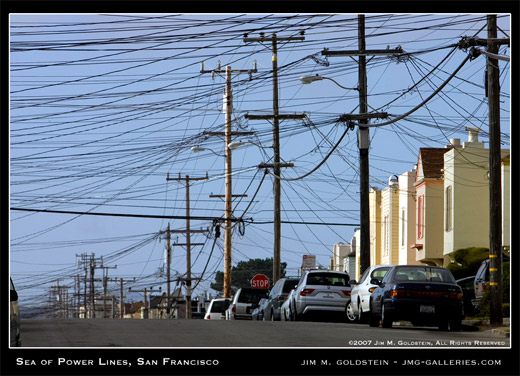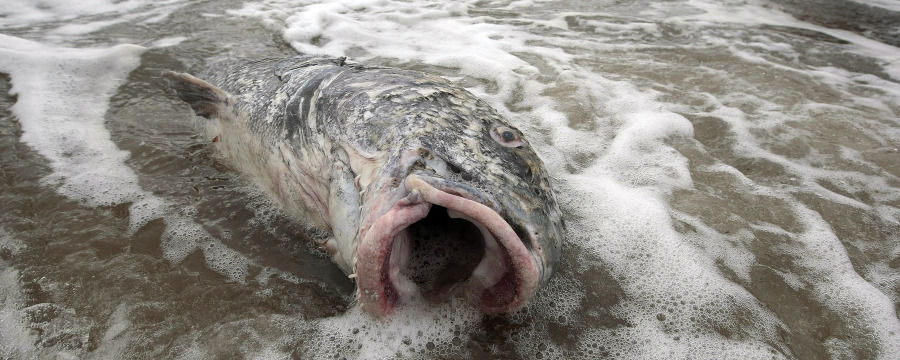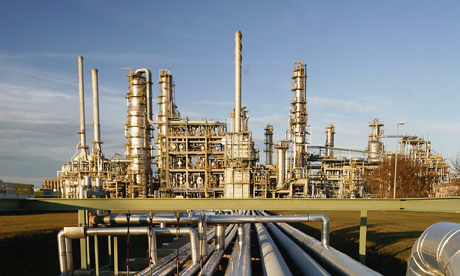The more I read about the BP/Halliburton Oil Spill, the more I think about how absurd it is that we put untold $billions of business and government investment dollars into drilling for a toxic liquid that's so scarce at this point that we need to drill in 5,000-foot-deep water in the middle of the ocean to get it.
I mean, we can put people on the moon, but we're
this slow in developing the political willpower to ramp up clean renewable energy and
save our economy, health, security and environment from our addiction to this evil black slime of an energy source?
Watching events unfold, I'm speechless that BP not only wasn't prepared for something like this, but
fought off government regulators' efforts to make sure they had all systems in place for making 100% sure they could shut off the spigot if something like this happened. I'm even more speechless that regulators didn't spine up and force BP to invest in the spill prevention equipment that would, as we speak, be providing the company with a humongous return on investment. And I've completely had it with taking risks like this just to get at dirty energy and the
many (very costly) ills that it inflicts upon society. At this point, the risks we take for our dirty energy fix are
akin to those that a heroin junky takes. It's both immensely frustrating and pathetic that a society as advanced as ours can't be bolder in doing what is clearly right on energy.
As both a scientist and a human being, I can't believe that not only is there an uncontrolled pipe spewing oil 5,000 feet down at the bottom of the ocean, but that the company responsible is being allowed to
spray and pump millions of gallons of toxic dispersants into the spill to make it less visible. On top of that, we really don't know what kind of impact such a massive quantity of toxic dispersants is going to have on the Gulf of Mexico ecosystem and its people alike. Well, we do have an idea, and
it's not pretty:
Chemically dispersing oil spills “solves the political problem of visible oil but not the environmental problem,” Robert Brulle, a 20-year Coast Guard veteran and an affiliate professor of public health at Drexel University, told me. These dispersants “do not actually reduce the total amount of oil entering the environment,” as a 2005 National Academy of Sciences report on the subject put it.
In short: out of sight, out of mind. But not out of the body of marine life.
Dispersants decrease the amount of oil that directly reaches the shores or the creatures that live on the shores or sea surface. But they increase the exposure to oil by creatures that live in the water or on the sea floor — like, say, shrimp or oysters.
I spoke to Carys Mitchelmore, one of the writers of the toxicity chapter for the NAS report. She explained that dispersants are “a molecule that looks like a snake. The head part likes water and the tail part likes oil.” The dispersant “pulls the oil into the water in the form of tiny droplets.”
And that means subsurface creatures — from oysters to coral to larval eggs — that might never have had significant exposure to the oil are now going to get a double whammy, getting hit by the oil and by the dispersants. Worse, the oil droplets are now in a form that looks like food (e.g., the same size as algae) to filter feeders like oysters, which otherwise may only have been exposed to the far lower levels of dissolved oil components found under a typical oil slick. The droplets can also clog up fish gills.
Mitchelmore noted that “oil contains a whole suite of toxic chemicals, including known carcinogens.” The dispersants can lead to far greater accumulation in living organisms of polycyclic aromatic hydrocarbons (PAHs) — oil-derived toxic compounds that were found in mussels 19 months after one spill in which dispersants were used. After the 1989 Exxon Valdez spill, a study found PAHs had an impact on the developing hearts of both Pacific herring and pink salmon embryos.
Pretty eye-opening, ain't it? So then, what's going to happen to the people and their families and fishing boats and businesses (from fish wholesalers to retailers to restaurants to recreational fishing and tourism businesses) that
depend on a healthy Gulf of Mexico? What's going to happen to the shrimp and the oysters and the fish -- how long until we can
really eat them safely once again? What's going to happen to the sharks and rays and turtles that help
hold the ecosystem together? What's going to happen to the
dolphins and the whales and the
seabirds? How long is this spill going to be a literal cancer on the Gulf of Mexico's communities and ecosystems alike?
Are BP, Halliburton and Transocean going to step up and do what's right by footing the bill to cure this cancer? Are voters going to hold the government accountable and make sure our politicians learn the lessons on energy that are clearly being taught here?
For politicians who so strongly hang hats on slogans like "Pro-life" and "Pro-choice", how can we tolerate allowing even one more oil catastrophe like this to be inflicted upon our fellow citizens, our cherished natural heritage, and the wondrous diversity of life we share the earth with? How can we continue to choose
dirty oil when our clean energy alternatives offer a far better future for our environment, economy, health and security alike?
Our rapid transition to a clean energy economy, which will also help solve
climate change and slow
biodiversity loss, is my #1 voting issue. Who's joining me in
holding our politicians accountable for getting the job done?
...
Photo by Gary Braasch



















